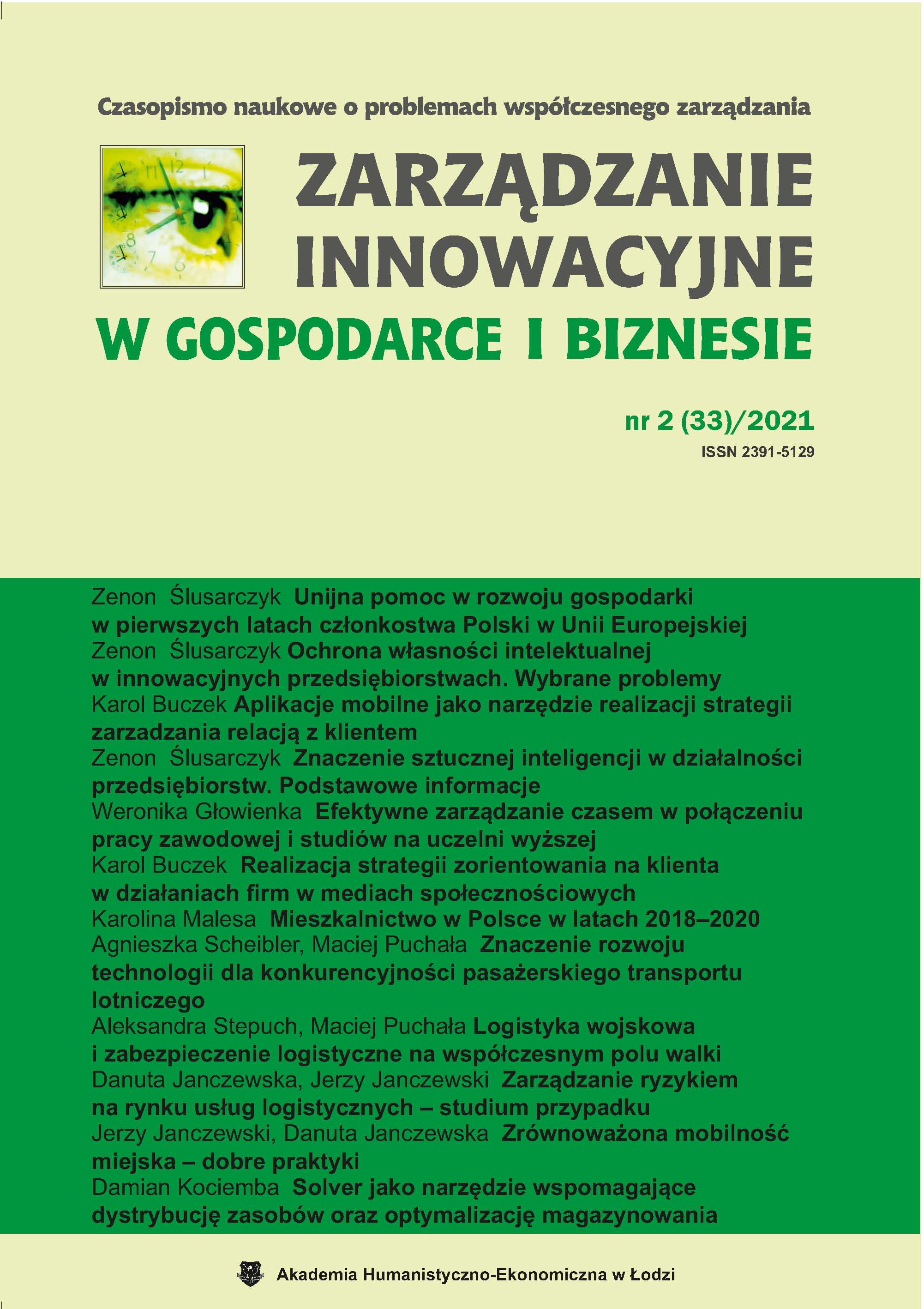Efektywne zarządzanie czasem w połączeniu pracy zawodowej i studiów na uczelni wyższej
DOI:
https://doi.org/10.25312/2391-5129.33/2021_05wgSłowa kluczowe:
zarządzanie czasem, studia, praca zawodowa, organizacja, planAbstrakt
W obecnym świecie dobra organizacja czasu to podstawa. Ludzie mają coraz więcej obowiązków, a doba wciąż trwa jedynie dwadzieścia cztery godziny. Aby wypełnić wszystkie cele na daną jednostkę czasu, należy odpowiednio zarządzać swoim czasem, co nie jest łatwe. W części teoretycznej opracowania omówione zostało pojęcie zarządzania czasem. Przedstawiono najprostszą definicję zarządzania czasem oraz jedną z głównych metod zarządzania czasem. Dodatkowo przybliżono zasadę Pareto oraz prawo Parkinsona. W części empirycznej zostały opracowane wyniki badania przeprowadzonego za pomocą autorskiego kwestionariusza ankietowego. Badanie skierowane było do studentów aktywnych zawodowo. Po przeanalizowaniu struktury odpowiedzi na wybrane pytania sformułowane zostały wnioski. Większość studentów ocenia swoją umiejętność zarządzania czasem jako dobrą oraz widzi jej poprawę, od kiedy połączyli studia i pracę. Studenci uważają również, że łączenie studiów i pracy zawodowej jest trudne i wymaga dobrej organizacji. Dodatkowo jako metodę badawczą wykorzystano doświadczenie autora, aktywnego zawodowo studenta trzeciego roku studiów pierwszego stopnia na Uniwersytecie Przyrodniczym w Lublinie.
Pobrania
Bibliografia
Antoszkiewicz J.D. (2012), Funkcjonowanie firmy rodzinnej w świetle zasady Pareto – 20/80, [w:] A. Marjański (red.), Firmy rodzinne – współczesne wyzwania przedsiębiorczości rodzinnej. Determinanty rozwoju, Wydawnictwo Społecznej Akademii Nauk, Łódź.
Budzisz B. (2011), Narzędzia stosowane w coachingu, „Economy and Management”, nr 3.
Burlita A. (2016), „Człowiek pośpiechu” – o problemach z czasem współczesnego konsumenta, „Studia Ekonomiczne. Zeszyty Naukowe Uniwersytetu Ekonomicznego w Katowicach”, nr 254.
Grzyb K., Kryzhanivska V. (2020), Zarządzanie czasem, https://mfiles.pl/pl/index.php/Zarz%C4%85dzanie_czasem [dostęp: 28.10.2021].
Lešková L. (2018), Applying of time-management at students of field of social work, „Zeszyty Naukowe Ostrołęckiego Towarzystwa Naukowego”, nr 32.
Ogorzelec K. (2018), Wiedza o sobie jako czynnik sprzyjający zarządzaniu czasem pracy i kreowaniu własnego wizerunku w kontekście zarządzania operacyjnego, „Prace Naukowe Wałbrzyskiej Wyższej Szkoły Zarządzania i Przedsiębiorczości”, t. 45.
Olejniczak A. (2013), Efektywne zarządzanie czasem – wybrane zagadnienia, „Marketing Instytucji Naukowych i Badawczych”, nr 1(7).
Pluta A. (2013), Zarządzanie czasem – mocna czy słaba strona pracownika XXI wieku?, „Edukacja Humanistyczna”, nr 1(28).
Rezmer K. (2020), Metody i techniki zarządzania czasem na przykładzie studentów Wydziału Zarządzania Uniwersytetu Technologiczno-Przyrodniczego w Bydgoszczy, „Zeszyty Naukowe Wyższej Szkoły Humanitas. Zarządzanie”, nr 2.
Wojtoszek K. (2014), Proces twórczy a zarządzanie sobą w czasie na przykładzie pisania rozprawy doktorskiej, „Prace Naukowe Wałbrzyskiej Wyższej Szkoły Zarządzania i Przedsiębiorczości”, t. 29, nr 4.
Pobrania
Opublikowane
Numer
Dział
Licencja
Prawa autorskie (c) 2022 Akademia Humanistyczno-Ekonomiczna w Łodzi

Utwór dostępny jest na licencji Creative Commons Uznanie autorstwa – Na tych samych warunkach 4.0 Miedzynarodowe.



